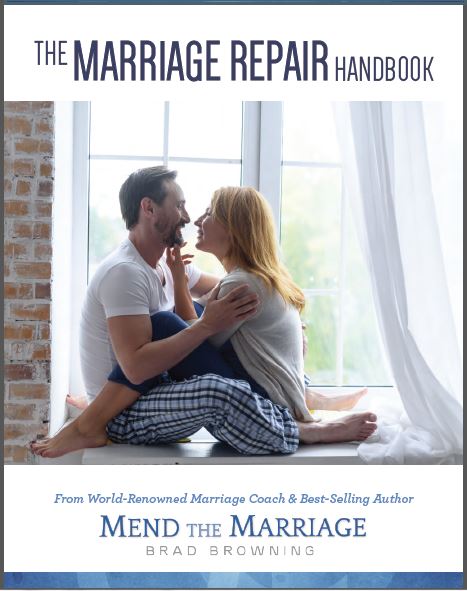How to resolve conflict in a relationship when both feel strongly requires a delicate dance of assertiveness and empathy. It’s like balancing on a tightrope, where both individuals express their opinions and emotions without trampling on the other’s perspective. By understanding the root causes of the conflict, communicating openly, and embracing collaborative problem-solving, couples can navigate disagreements successfully.
Remember, a strong relationship is built on a foundation of mutual respect, understanding, and a shared commitment to growth. It’s not about eliminating conflict entirely but transforming it into a catalyst for positive change. By approaching conflicts with a mindset of teamwork and love, couples can navigate the storms together, emerging stronger and more connected on the other side.
Understanding Unhealthy Conflict in Relationships
Conflict is a natural aspect of human relationships, including marriages. However, when conflict takes a turn for the worse, it can negatively impact the health of a relationship. Unhealthy conflict often emerges when communication breaks down between partners. It’s like a language that both struggle to understand, leading to feelings of being misunderstood, neglected, or unimportant.
In these moments, arguments can become frequent, and a sense of resentment may build up. Partners might start avoiding each other to sidestep potential confrontations, further eroding the connection that drew them together in the first place. Recognizing these signs is pivotal in addressing and resolving the issues that contribute to unhealthy conflict.
What is Relationship Conflict?
Relationship conflict is like a storm that brews when the waters of understanding become turbulent between partners. It encompasses the disagreements, tension, and misunderstandings that arise in the course of a relationship. These conflicts can be caused by various factors such as differences in values, communication styles, or unmet needs.
Understanding the nature of conflict in your relationship is the first step towards finding effective solutions. It’s like deciphering a puzzle; the more you understand the pieces, the easier it becomes to put them together. By acknowledging and accepting the existence of conflict, you create a foundation for working through these challenges constructively.
Causes of Conflict in Marriage
Marriage is a journey with its fair share of highs and lows. Conflicts in marriage can stem from a multitude of sources, often acting as bumps in the road. Poor communication stands out as a common culprit, where partners might find it challenging to express their thoughts and feelings effectively. Financial stress, differences in parenting styles, and unmet emotional needs also contribute to the conflict landscape.
Identifying these causes is akin to diagnosing an ailment – once you know what’s causing the discomfort, you can tailor your approach to finding a remedy. It’s crucial for couples to recognize and acknowledge these underlying issues, as it forms the basis for effective conflict resolution and the preservation of a healthy, thriving marriage.
Examples of Conflict in Relationships
Conflict in relationships can manifest in various forms, like a multifaceted puzzle with pieces of different shapes and sizes. It could be arguing about who does the dishes, disagreements about how to spend free time, or more profound issues like trust concerns and insecurities. Recognizing specific examples of conflict in your marriage is akin to understanding the unique language of your relationship.
By identifying these examples, you gain insight into the specific areas that may need attention and resolution. It’s like shining a light on the darker corners of your relationship, allowing you to address these issues more effectively. Understanding these examples enables you to tailor your approach, fostering a more profound connection with your partner.
How to Deal with Disagreements in a Relationship
Dealing with disagreements in a relationship requires finesse and a commitment to effective communication. Instead of engaging in a blame game, focus on expressing your feelings and needs openly. Picture it as two people sharing their favorite stories – one listens with genuine interest, and the other speaks from the heart.
Active listening is a key ingredient in this process. It involves not just hearing your partner’s words but understanding the emotions and intentions behind them. By doing so, you create a space where both can feel heard and understood. This forms the basis for finding common ground and working together to overcome disagreements, strengthening your bond in the process.
How to Resolve Conflict in a Relationship When Both feel Strongly
Resolving issues in a relationship is a collaborative effort, much like a team working towards a common goal. The first step is identifying the specific problem at hand. It’s like embarking on a journey and acknowledging the obstacles in your path. By discussing these issues calmly, without resorting to blame or criticism, you create a conducive environment for finding solutions.
Using “I” statements is a powerful tool in expressing your feelings without sounding accusatory. It shifts the focus from pointing fingers to sharing personal experiences, fostering understanding between partners. Together, brainstorming potential solutions becomes a joint venture, and a willingness to compromise for the sake of your relationship emerges as a testament to your commitment.
How to Resolve Conflict in a Marriage
Resolving conflict in a marriage is not a one-size-fits-all endeavor. It requires a foundation of trust, understanding, and a shared commitment to the well-being of the relationship. Scheduling regular check-ins with your partner is akin to preventive maintenance – it allows you to address concerns before they escalate.
If conflicts persist and become overwhelming, seeking professional help is a wise decision. Just as you consult a specialist for health issues, a trained therapist can provide guidance, facilitate communication, and offer valuable tools for effective conflict resolution. This proactive approach is a testament to the importance you place on the health and longevity of your marriage.
The Impact of Unresolved Conflict on a Marriage
Unresolved conflict in a marriage is like a storm that lingers, casting a shadow over the once sunny landscape. Its impact is far-reaching, leading to emotional distancing between partners. Trust, the bedrock of any healthy marriage, starts to erode, creating a toxic atmosphere that permeates every aspect of the relationship.
Over time, the cumulative effects of unresolved conflicts can result in marital dissatisfaction. It’s like a crack in a foundation; if left unattended, it has the potential to weaken the structure until it becomes irreparable. Recognizing the gravity of unresolved conflict is essential for motivating couples to take proactive steps towards resolution.
Effective Strategies for Resolving Conflict: How to Resolve Conflict in a Relationship when both feel Strongly
Implementing effective strategies for conflict resolution is akin to having a toolkit equipped for any household repair. Cultivating empathy towards your partner’s perspective is like oiling the gears of understanding. Practicing active listening is a wrench that tightens the bonds of communication, ensuring that each partner feels heard and valued.
Fostering a sense of teamwork in resolving conflicts is crucial. It’s not about one person emerging victorious; it’s about both partners collaborating to find solutions that benefit the relationship. Patience becomes the glue that holds this process together, as resolving conflict is a journey rather than a sprint. By employing these strategies, couples can transform conflicts into opportunities for growth and connection.
The Importance of Seeking Professional Help
Recognizing when to seek professional help is a hallmark of wisdom and maturity. Just as you consult a mechanic for intricate car troubles, seeking the guidance of a trained therapist when faced with persistent relationship conflicts is a proactive step. A therapist serves as a navigator in the storm, offering insights, tools, and a neutral perspective that can bring clarity to the murkiest of waters.
Don’t view seeking professional help as a sign of weakness; instead, see it as a courageous step towards strengthening your marriage. A therapist can provide a safe space for open communication, identify patterns of behavior that contribute to conflict, and guide couples towards lasting solutions. In doing so, couples equip themselves with the tools necessary for navigating future challenges and ensuring the longevity of their relationship.








